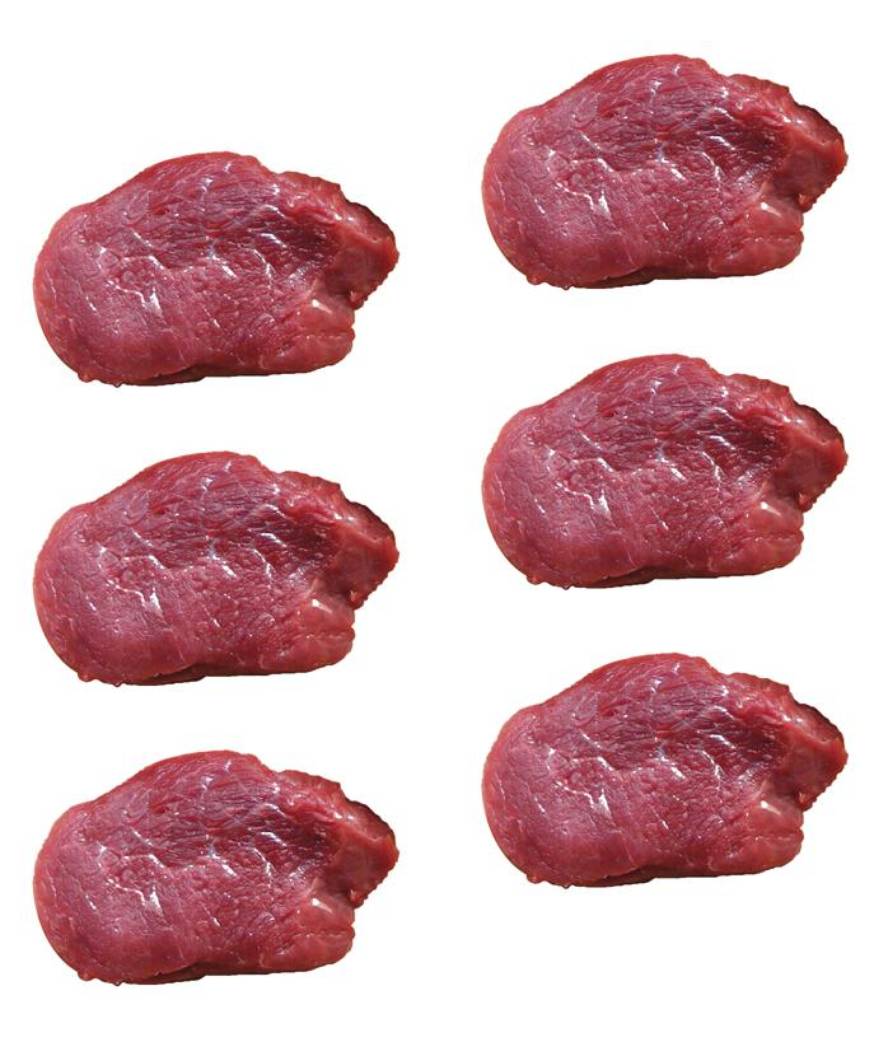Faced with globalization, I "food citizen". Meat of cloned animals
They appeared with the promise to offer safer, healthier and more sustainable foods, but food biotechnologies have little space for the time being in Europe. However, despite not having participated directly in the production of food, biotechnologies have provided our society with an important service, since they have allowed us to reflect on food systems from a different perspective. Since the existence of these technologies, many of our politicians and organizations seem to have returned to reality from the territory of Nunca. Unlike before, they have lost the shame of saying that in the world there is hunger, unjust trade structures, environmental abandonment and lack of democracy. However, the politicians, instead of dealing with the problems and injustices that are in the food market, have adopted a simpler way: the own biotechnology that has revealed everything that needs to be solved, the spy, consider it a fellow. As without biotechnology we were talking little about hunger and food fraud, let’s eliminate all those foods that contain GMOs, clones and “genes,” and perhaps silence the voice of those who demand a fair and democratic market. With reduced information, we are about to fall back to the boat.
What has recently happened with meat, milk and other cloned animal products is an exceptional example. The Europarliament and the European Commission have represented the role of good and bad, and we, looking at the finger of the Moon (in this case the sweats of the Europarliament), have not realized that both institutions are at the service of the same system and of the same market. In view of the work, it seems that the guilt is of the biotechnology that has allowed to create the meat of clones and not of the model of globalization.
In April, the Commission of the European Union decided not to adopt the measures proposed by the European Parliament on cloned products, among which is the prohibition to commercialize the products of the offspring of a cloned animal before the fifth generation and the need to declare in future generations that the product comes from cloned animals. The origin of the debate is on the other side of the Atlantic. In the United States, the FDA grants authorizations for the marketing of food and medicines, and in 2006 granted definitive authorization for pork and cloned bovine products. The debate arose in Europe by imports.
Compared to the intense polemics of previous decades, there is an evolutionary symbol in the political process of clone meat. As has already been done on numerous occasions, the European Commission wanted to place the process of reflection exclusively on food security, insisting that there was no reason to worry about scientific data. But the novelty was that the Parliament did not question security studies. The image of the European Food Safety Agency (ESEA), a key element in the European system, which has been affected by the quality of scientific reports, has been a new way. The Europarliament has stated directly that the biggest concern goes beyond technology and has to do with the sensitivity of consumers. That is, the measures start from the will of consumers to be more active entrepreneurs in the market (the so-called food citizen).
Knowing this, how should we understand the Parliament session? That is, we have to think that the question of cloned meat has been honestly considered as an opportunity to democratize the market and, unfortunately, has it not been successful? Knowing the level of parliamentary legal services, this version is incredible. Our governments, together with the European Union, are part of the agreements of the World Trade Organization. According to these agreements, a country cannot refuse products from other countries or protect its domestic products or services. When it comes to exports, it seems good to us, but politicians find it difficult to explain that this also affects imports. U.S. products (clothing, cars or meats) open the doors of the European Union market when they have an adequate level of safety.
There is no doubt that the European institutions have a serious intention to address these agreements. However, the sessions have left us a good image, because when it comes to choosing food, Europeans want to project other ethical, social, cultural and economic criteria, in addition to health. Economic globalization carries our identity and cultural diversity as a gigantic wave, and we open ourselves to any action that allows us not to be consumers of food but of food city. But in this case the messenger does not deserve our confidence. The European Union, built on a liberalized market, is an economic system that wants to maintain the institutions of the European Union, which, despite some symbolic action, do not think they are willing to boycott.
In this representation it is also critical that technological advances in food matters have reappeared as fellows. They are symbols of large-scale mass productions from abroad, both transgenic in general and American cloning. Therefore, it is understandable to stimulate sensitivity for many reasons, and it is also understandable that we often accept the opposition that they symbolically show. But if we analyze more thoroughly, does it benefit us? By well separating the advances of science from the political realm, we believe that we should demand more effective measures for the free exercise of our individual rights. Among these measures is undoubtedly the strengthening of our capacity to produce food in a healthy and sustainable way, as well as the establishment of adequate prices. Just as consumers want to reinforce our citizenship in the face of globalization, food biotechnology deserves a transition. He has been labeled as a simple tool for large-scale production and claims that it is also a tool for producing the food that each person's organism needs in a proper and sustainable way. In view of what he has offered us in medicine, we believe it is worth giving us the opportunity.







